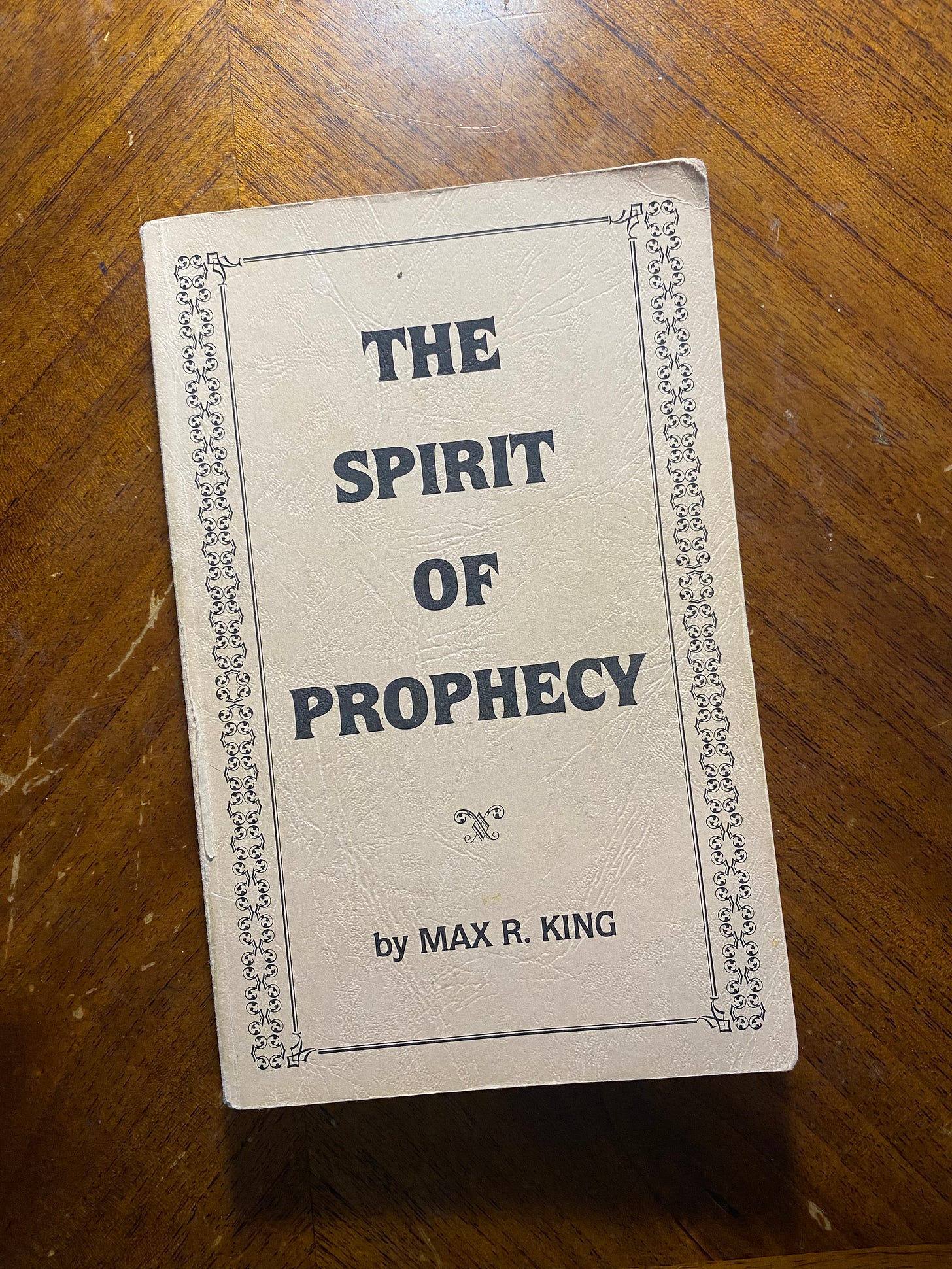Material & Immaterial Dichotomy
More Max Kingism from Gary DeMar and Kim Burgess
We have already seen how Gary DeMar and Kim Burgess have redefined the “resurrection of the body” in Romans 8 to mean that “Under the old covenant the body of Israel's existence was perishable, dishonorable, weak humble, lowly, and disappearing. Israel lived in a body of death that was about to be changed into a glorious spiritual body. It had been sown in the death of Christ and was being raised in Christ. And according to Paul this transition would take place before all the Corinthians fell asleep. (1 Cor 15: 51).” This is straight out of Max King’s The Cross and the Parousia of Christ.
Besides this novel idea of the resurrection, another hyper-preterist concept is implicit in the above summary that comes straight from Max King. It concerns the nature of the old covenant vs. the new covenant. Below, I have included pages 383 to 388 of Max’s Spirit of Prophecy, wherein he summarizes “The Manner of Prophecy’s Fulfillment.”
In short, the two covenants correspond to two contrasting states or natures of things contained therein. The types, shadows, or patterns of the old covenant were of carnal, earthly, fleshly, or material form. That material age bore witness of the intangible, heavenly, spiritual, or non-material age to come under Christ and the new covenant. However, before Christ could appear a second time spiritually (i.e., non-material, non-fleshly) to inaugurate the non-material, non-fleshly new covenant kingdom of God, He had to appear the first time in fleshly, bodily form in order to bring the carnal, earthly, fleshly, or material old covenant to completion.
To argue for a future bodily return of Christ, a fleshly resurrection, and new material heavens and earth, as Christianity has rightly argued from Scripture since day one, is to revert back to the carnal old age. Jesus ditched His body, most likely at His ascension, because the new age has no bearing on the earthly and material.
This material and immaterial dichotomy was the major premise of Max King’s hyper-preterism.1 And it is exactly what Gary DeMar and Kim Burgess promote in their new podcast series. You can hear it described briefly at the end of this clip. In response to this episode, Daviel D'Paz wrote, “I hold to a postmillennial view which says that the Kingdom of God that was established with the coming of Jesus will grow to include all the nations of this world. And after a long period of time Jesus will come physically to this earth to put an end to sin and death and resurrect all the believers who have died in Him.” That latter statement is Christianity 101. And here was Kim Burgess’ response:
According to Gary and Kim, we are not to look for a bodily return of Christ, a fleshly resurrection, or a redemption of the material cosmos. Again, folks, that is straight out of Max King. That is hyper-preterism. Anyone who tells you otherwise is either ignorant of hyper-preterism, ignorant of what Kim and Gary are podcasting, or lying to you.
John Calvin had some strong words to say about those who deny the continual incarnation of Christ by limiting “the days of His flesh” to His first advent:
7. Who in the days, etc. As the form and beauty of Christ is especially disfigured by the cross, while men do not consider the end for which he humbled himself, the Apostle again teaches us what he had before briefly referred to, that his wonderful goodness shines forth especially in this respect, that he for our good subjected himself to our infirmities. It hence appears that our faith is thus confirmed, and that his honor is not diminished for having borne our evils.
He points out two causes why it behooved Christ to suffer, the proximate and the ultimate. The proximate was, that he might learn obedience; and the ultimate, that he might be thus consecrated a priest for our salutation.
The days of his flesh no doubt mean his life in this world. It hence follows, that the word flesh does not signify what is material, but a condition, according to what is said in 1 Corinthians 15:50, “Flesh and blood shall not inherit the kingdom of God.” Rave then do those fanatical men who dream that Christ is now divested of his flesh, because it is here intimated that he has outlived the days of his flesh for it is one thing to be a real man, though endued with a blessed immortality; it is another thing to be liable to those human sorrows and infirmities, which Christ sustained as long as he was in this world, but has now laid aside, having been received into heaven.
Let us now look into the subject. Christ who was a Son, who sought relief from the Father and was heard, yet suffered death, that thus he might be taught to obey. There is in every word a singular importance. By days of the flesh he intimates that the time of our miseries is limited, which brings no small alleviation. And doubtless hard were our condition, and by no means tolerable, if no end of suffering were set before us. The three things which follow bring us also no small consolations; Christ was a Son, whom his own dignity exempted from the common lot of men, and yet he subjected himself to that lot for our sakes: who now of us mortals can dare refuse the same condition? Another argument may be added, — though we may be pressed down by adversity, yet we are not excluded from the number of God’s children, since we see him going before us who was by nature his only Son; for that we are counted his children is owing only to the gift of adoption by which he admits us into a union with him, who alone lays claim to this honor in his own right.
In another place, Calvin states that rejecting the continual incarnation of Christ is a rejection of the Gospel. In his commentary on 2 Cor. 5, he writes:
Scripture proclaims throughout, that Christ does now as certainly lead a glorious life in our flesh, as he once suffered in it. Nay more, take away this foundation, and our whole faith falls to the ground; for whence comes the hope of immortality, except from this, that we have already a pattern of it in the person of Christ? For as righteousness is restored to us on this ground, that Christ, by fulfilling the law in our nature, has abolished Adam’s disobedience, so also life has been restored to us by this means, that he has opened up for our nature the kingdom of God, from which it had been banished, and has given it a place in the heavenly dwelling. Hence, if we do not now recognize Christ’s flesh, we lose the whole of that confidence and consolation that we ought to have in him. But we acknowledge Christ as man, and as our brother in his flesh — not in a fleshly manner; because we rest solely in the consideration of his spiritual gifts. Hence he is spiritual to us, not as if he laid aside the body, and became a spirit, but because he regenerates and governs his own people by the influence of his Spirit.
Friends, these are not peripheral matters. Gary and Kim’s hyper-preterism is a direct attack on Christianity and the Gospel.
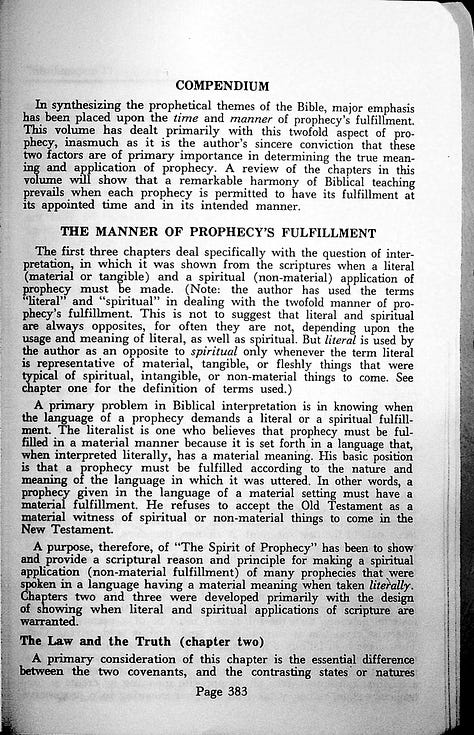
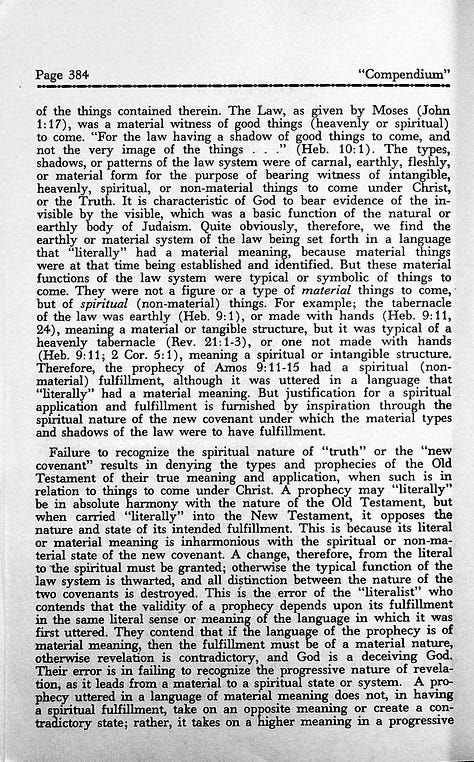
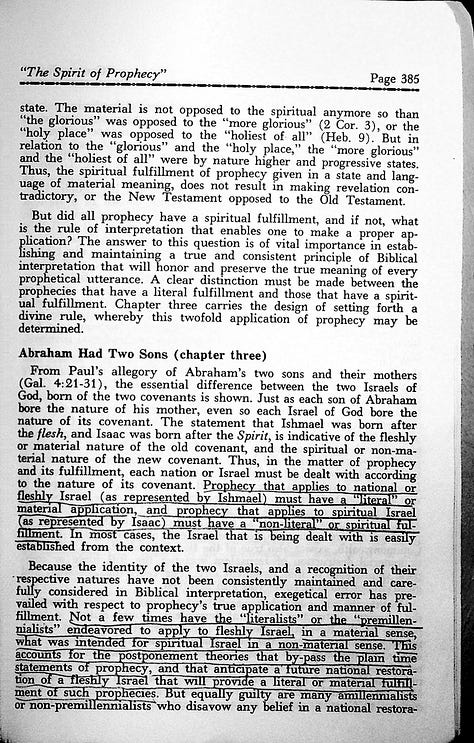

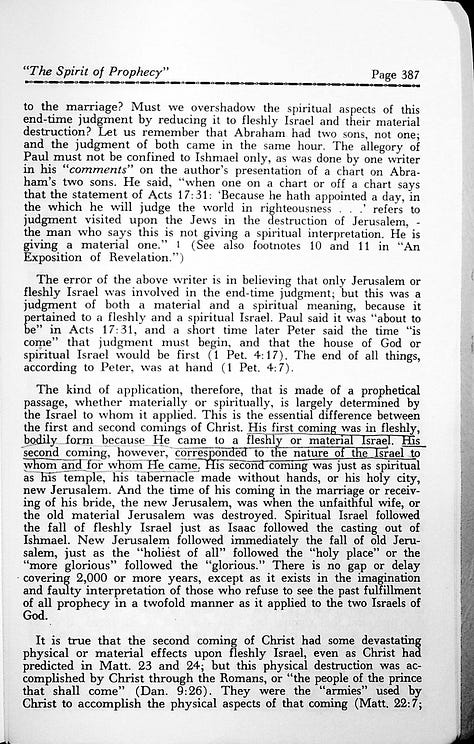
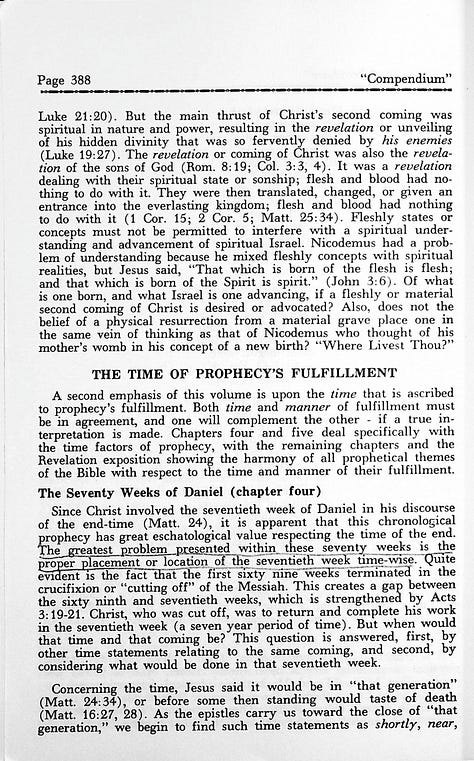
This is also the premise of Don Preston’s hyper-preterist book, Like Father Like Son – On Clouds of Glory.



